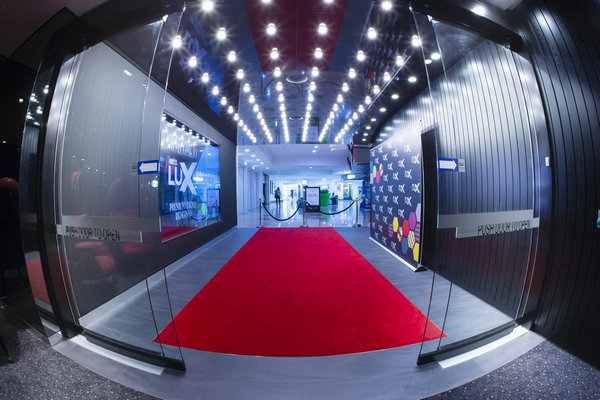 |
|
A renovated Hoyts cinema in Australia. Many of its cinemas have undergone renovations since Wanda bought the company a year ago. [Photo provided to China Daily] |
Alongside the DreamWorks' blockbuster, Monster Hunt-China's highest-grossing film last year-and Mojin: The Lost Legend-a tomb raider-themed film-were among the most-watched Chinese movies in Hoyts' cinemas last year, says Keogh.
For Jack Q. Gao, senior vice-president of Wanda Cultural Industry Group, Wanda's ownership of Hoyts acts as a bridge between Chinese and Australian filmmakers.
"Australia used to be mostly known to Chinese moviegoers for stars such as Nicole Kidman and Hugh Jackman, but China's increasing presence on the big screen is boosting cultural communication between the two countries," he says.
Australia's attractive landscapes and tax incentives for filmmakers have attracted a number of Chinese film studios to the country, says Gao.
China's booming movie market, which took 44.1 billion yuan ($9.35 billion) at the box office last year, and which broke some records in the first five months of this year, has attracted many overseas and domestic investors.
"China's box office has been very strong, and that gives movie producers a lot of confidence to invest in movie ideas, so a lot of Hollywood studios are investing in their pipeline of movies," says Keogh.
Meanwhile, Wanda has started to build Wanda Studios Qingdao-expected to cost 50 billion yuan-which will become the world's largest film and television production facility, once it opens next year.
Separately, director Zhang Yimou's fantasy epic The Great Wall, starring Matt Damon and Andy Lau, is the most expensive Sino-US coproduction with a budget of up to 800 million yuan.
The film, to be released this year, was shot mainly in Qingdao, says Gao.
"It's really so good to see Chinese films scale up to a new level," says Gao.